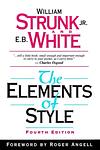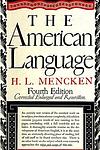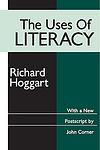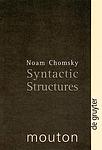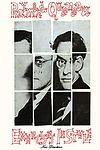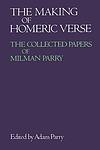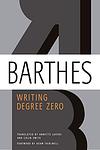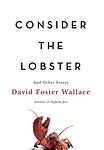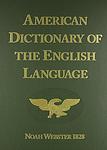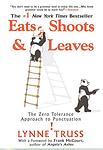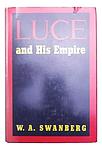The Greatest "Language & Writing" Books of All Time
Click to learn how this list is calculated.
This list represents a comprehensive and trusted collection of the greatest books. Developed through a specialized algorithm, it brings together 284 'best of' book lists to form a definitive guide to the world's most acclaimed books. For those interested in how these books are chosen, additional details can be found on the rankings page.
Genres
The "Language & Writing" category encompasses a diverse range of books dedicated to the intricacies of language use, structure, and the art of crafting written content. This genre serves as a resource for linguists, writers, educators, and language enthusiasts, offering insights into grammar, syntax, semantics, and phonetics, as well as providing guidance on effective writing techniques across various styles and formats. From authoritative dictionaries and comprehensive guides to grammar and usage, to books on creative writing, storytelling, and professional communication, the "Language & Writing" category is an essential repository for anyone looking to enhance their command of language, whether for personal growth, academic advancement, or professional development. It is a celebration of the written word, providing tools and knowledge to communicate with clarity, elegance, and power.
Countries
Date Range
Reading Statistics
Click the button below to see how many of these books you've read!
Download
If you're interested in downloading this list as a CSV file for use in a spreadsheet application, you can easily do so by clicking the button below. Please note that to ensure a manageable file size and faster download, the CSV will include details for only the first 500 books.
Download-
1. The Elements of Style by E. B. White, William Strunk Jr.
This book is a definitive guide and classic manual on the principles of English language read by millions of readers. The 18 main topics are organized under headings such as Elementary Rules of Usage, Elementary Principles of Composition, A Few Matters of Form, Words and Expressions Commonly Misused, and An Approach to Style. The book's unique tone, wit and charm have conveyed the principles of English style to millions of readers, making it a beloved resource for those who want to write clear, correct and effective prose.
-
2. Tractatus Logico-Philosophicus by Ludwig Wittgenstein
"Tractatus Logico-Philosophicus" is a seminal work in analytic philosophy that presents a comprehensive picture of reality and our knowledge of it. The book outlines a logical structure for all scientific discourse, arguing that language and its logical structure are the primary tools for understanding and representing the world. It proposes that all philosophical problems arise from misunderstandings of the logic of language, and that all meaningful propositions are pictures of states of affairs in the world. The book concludes with the famous line "Whereof one cannot speak, thereof one must be silent," suggesting that things that cannot be spoken about logically should not be spoken about at all.
-
3. On Writing by Stephen King
This book is a memoir that serves as a guide for aspiring writers. The author shares his journey as a writer, his struggles, and his successes, while also providing practical advice on the craft of writing. It delves into the mechanics of writing, the importance of reading, the role of an editor, and the perseverance required to be a successful writer. The book also discusses the author's near-fatal accident and how it impacted his writing process, emphasizing the importance of resilience and dedication to the craft.
-
4. The American Language by H. L. Mencken
This book is a comprehensive study of the English language as it is spoken in the United States. It explores the unique linguistic characteristics, pronunciation, vocabulary, and grammar that distinguish American English from British English. The author also delves into the influences of other languages on American English, the evolution of American slang, and the regional dialects across the United States, providing a detailed and insightful analysis of the American language.
-
5. The Uses of Literacy by Richard Hoggart
"The Uses of Literacy" is a sociological study that explores the impact of mass media and popular culture on traditional working-class values and communities in Britain during the mid-20th century. The author combines personal memoir with scholarly analysis to examine how the spread of American consumer culture and the rise of mass media have influenced British society, especially among the working class. The book serves as a critique of the commercialization of culture and the erosion of authentic, local cultures and traditions.
-
6. Syntactic Structures by Noam Chomsky
This groundbreaking work introduces the theory of generative grammar, revolutionizing the study of linguistics by arguing that the structure of language is innate to the human mind rather than learned through social interaction. The book presents a new approach to the study of language, suggesting that linguistic structures are not simply mirrors of social realities but are governed by universal rules and principles. It also introduces the concept of transformational-generative grammar, a framework for describing the syntactic structures of language.
-
7. Exercises in Style by Raymond Queneau
This unique book tells the same simple story 99 different ways, each in a different style, voice, or literary form. The narrative is about a man who sees the same stranger twice in one day - once on a bus and later in front of a train station. The book serves as an exploration of the endless possibilities of language and style, highlighting the creativity and versatility of storytelling.
-
8. The Making of Homeric Verse by Milman Parry
This book is a comprehensive study of the structure and formation of the earliest form of Greek poetry, the Homeric verse. It explores the oral tradition of the Homeric epics, suggesting that they were originally composed and performed by illiterate bards who used a complex system of formulaic language to create and remember the epic poems. The book also investigates the influence of the oral tradition on the written versions of the epics, offering a new understanding of the development of ancient Greek literature.
-
9. Scrutiny by F. R. Leavis
"Scrutiny" is a collection of critical essays that analyze various aspects of literature, culture, and society. The author employs a rigorous and scholarly approach, providing in-depth analyses of numerous works of literature, while also examining the role of literary criticism and its impact on culture. The book is a reflection of the author's belief in the importance of literature and its ability to shape and influence society. The author's sharp insights and thought-provoking commentary make this book a significant contribution to the field of literary criticism.
-
10. Writing Degree Zero by Roland Barthes
This book is a critical exploration of the nature and history of literature, focusing on the social and historical aspects of writing. It argues that language and literature are shaped by historical, social, and political forces, and that they are not neutral or natural. The author suggests that the style and form of writing are as important as the content, and he introduces the idea of "writing degree zero", which refers to a kind of writing that is stripped of style and personality, and is therefore capable of conveying truth in a direct and unmediated way.
-
11. Tropisms by Nathalie Sarraute
"Tropisms" is a collection of 24 short sketches that delve into the hidden undercurrents of human interactions and the subtle, often unnoticed movements of thought and feeling. The book, often considered a precursor to the nouveau roman literary movement, explores the mundane aspects of everyday life and the psychological complexities beneath them, using a unique, impressionistic style. The term 'tropisms' refers to the instinctive reactions of humans, similar to the biological responses of plants to stimuli.
-
12. The Message In the Bottle by Walker Percy
"The Message in the Bottle" is a collection of essays that explores the complex interplay between language, culture, and individual identity. The author delves into the philosophical and existential questions about human existence, examining how language shapes our understanding of the world and ourselves. The book also explores the concept of the "message in the bottle," a metaphor for the human quest for meaning amid the randomness and chaos of life. The author argues that humans are "lost in the cosmos" and must navigate their way through a world filled with confusing messages and signals.
-
13. Consider The Lobster by David Foster Wallace
"Consider The Lobster" is a collection of essays that delve into a wide array of topics, from the ethics of boiling a lobster alive, to the world of adult video awards, to the impact of September 11 on the American psyche. Each essay is meticulously researched and thought-provoking, showcasing the author's distinctive style of writing and his ability to view everyday situations from unique and often humorous perspectives. The book challenges readers to question their own beliefs and consider new viewpoints, making it a stimulating and engaging read.
-
14. Personal History by Katharine Graham
"Personal History" is an autobiography of a woman who inherited a media empire, The Washington Post, following her husband's suicide. The book explores her journey from a privileged yet sheltered upbringing to leading one of the most influential newspapers in the United States. It provides an intimate look into her personal life, including her struggles with self-confidence and her role in the coverage of significant historical events such as the Pentagon Papers and the Watergate scandal.
-
15. Enemies of Promise by Cyril Connolly
"Enemies of Promise" is a semi-autobiographical work that explores the challenges and obstacles that can hinder a writer's career and personal growth. The author divides these hindrances into two categories: the 'pram in the hallway', symbolising domesticity and family life, and the 'bore of the contemporary', representing the pressure to stay relevant and up-to-date. Through a blend of personal anecdotes, literary criticism, and social commentary, the book provides an insightful examination of the struggles faced by writers in their quest for literary success.
-
16. Webster's Dictionary by Noah Webster
This book is a comprehensive and authoritative English language dictionary that provides definitions, pronunciation guides, and word origins for a vast number of words. It also includes sections on grammar usage and other language-related topics. The book serves as an indispensable tool for students, writers, professionals, and anyone who seeks to enhance their English language skills and knowledge.
-
17. Thesaurus of English Words and Phrases by Peter Mark Roget
This book is a comprehensive collection of English words and phrases, organized by categories and subcategories for ease of use. It serves as a valuable tool for writers, students, and anyone seeking to expand their vocabulary or find the perfect word or phrase to express a specific idea or concept. The book also includes an index for quick reference and is known for its thoroughness and reliability.
-
18. The Rhetoric of Fiction by Wayne C Booth
This book is a comprehensive study of the art of narrative, discussing various aspects of storytelling such as point of view, voice, and implied author. It provides an in-depth analysis of the techniques used by writers to engage readers, create believable characters, and convey their intended messages. The book also explores the relationship between the author, the narrator, and the reader, and how these interactions shape the overall narrative.
-
19. Eats, Shoots and Leaves by Lynne Truss
This book is a humorous, yet educational, exploration of punctuation in the English language. The author uses wit and sarcasm to highlight the importance of correct punctuation, demonstrating how it can drastically change the meaning of a sentence. It provides examples of punctuation errors and their hilarious consequences, while also offering practical advice on how to avoid such mistakes. The book is a spirited call to arms for grammar enthusiasts, emphasizing the necessity of preserving the clarity and precision in writing that proper punctuation provides.
-
20. Understanding Poetry by Cleanth Brooks, Robert Penn Warren
"Understanding Poetry" is a comprehensive guide that aims to educate readers about the art of poetry, its interpretation, and its appreciation. It breaks down complex concepts into easily understandable language, making it a suitable read for both novices and seasoned poetry enthusiasts. The book covers a wide range of topics, from the basics of rhythm and meter to more advanced concepts like symbolism and imagery, and includes examples from a variety of poets to illustrate these concepts. It also encourages readers to engage with poetry on a deeper level, fostering a greater appreciation for this form of literature.
-
21. Mencken Chrestomathy by H. L. Mencken
This book is a compilation of the author's best and most representative writings, meticulously selected by the author himself. It covers a wide range of topics, including social issues, literature, and politics, offering a unique and insightful perspective on American culture. The author's sharp wit, sarcasm, and insightful critiques of society's follies and absurdities make this book a fascinating read.
-
22. Through the Language Glass: Why the World Looks Different in Other Languages by Guy Deutscher
This book explores the link between language and perception, challenging the conventional belief that languages are only tools for describing reality and do not influence the way we perceive the world. The author delves into how different languages can shape the way their speakers understand and interact with their surroundings, arguing that linguistic differences can significantly impact cognition and perception. The book combines linguistic analysis, cultural history, and cognitive science to provide a fascinating examination of how our mother tongue can affect our cognitive processes, including color perception and spatial orientation.
-
23. Double Fold: Libraries and the Assault on Paper by Nicholson Baker
The book is a critical examination of the practice of libraries in the United States, which, in the name of preservation, have been systematically destroying original newspapers and books to replace them with microfilmed copies. The author argues that this process, far from saving the material, often results in the loss of valuable information and the tactile experience of reading. He also criticizes the library community for its uncritical acceptance of new technologies and its failure to question the implications of these practices.
-
24. Luce and His Empire by W. A. Swanberg
"Luce and His Empire" is a biography that provides a comprehensive look into the life of a media mogul who founded a major weekly news magazine. The book delves into his personal life, his business strategies, and his influence on American journalism. The narrative also explores the mogul's conservative political views and his belief in the United States' role as a global leader, shedding light on how these perspectives shaped the content and tone of his media empire.
Reading Statistics
Click the button below to see how many of these books you've read!
Download
If you're interested in downloading this list as a CSV file for use in a spreadsheet application, you can easily do so by clicking the button below. Please note that to ensure a manageable file size and faster download, the CSV will include details for only the first 500 books.
Download